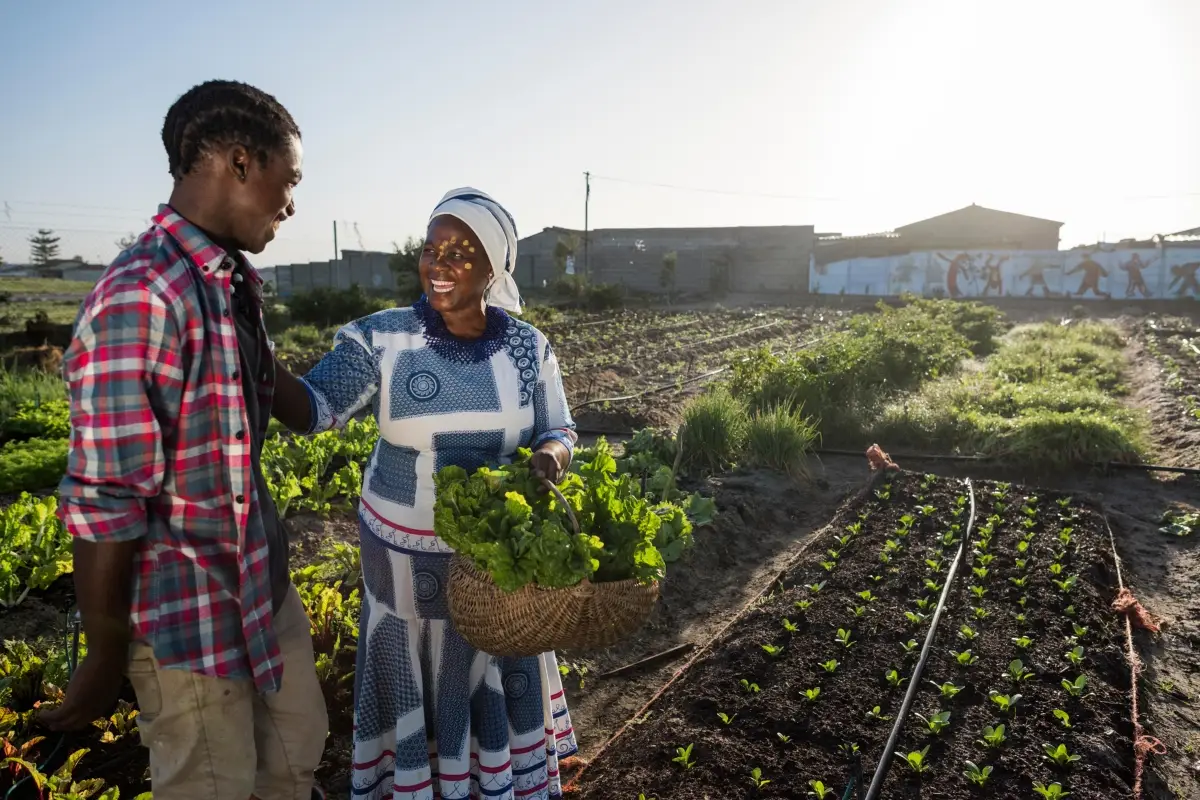
Regenerative Agriculture: Africa Calls for Better Access to Technology
Bayer supports farmers on the black continent, grappling with climate change

Africa’s smallholder farmers benefit from regenerative agriculture through a diverse set of practices, but they themselves need better access to technology. This was the key finding of the second African Farmers Roundtable, co-organized by the Pontifical Academy for Life, Bayer, Global Farmer Network, World Farmers’ Organization, African Agricultural Technology Foundation (Aatf) and Inter-American Institute for Cooperation on Agriculture (Iica). Sub-Saharan farmers from Côte d’Ivoire, Lesotho, Mali, Nigeria, Kenya, Rwanda, South Africa, Uganda and Zambia discussed with international policymakers and other key stakeholders the importance of policies that enable smallholders to apply regenerative agriculture practices more broadly and improve food security in Africa.
Farmers have called on governments to develop policies that promote an outcome-oriented, technology-neutral, and evidence-based approach to agricultural solutions. Combining this with better farmer education and support for regenerative farming practices could be a big step toward greater productivity, while benefiting the environment. This can be achieved through a diverse set of practices and technologies that combine modern and traditional tools, all tailored to farmers’ specific needs. Most importantly, farmers say there is no one-size-fits-all solution to this effort.
“The vast majority of food in Africa is produced by smallholder farmers. “It is important to listen to them and learn about the major challenges they face in light of climate change,” said Debra Mallowah , head of the Africa region for Bayer’s Crop Science division. “Today we heard how many farmers are contributing to the socioeconomic and environmental development of the sub-Saharan region. The private sector, together with governments and policy makers, international organizations, research institutions and civil society, must develop infrastructure, build capacity, conduct research and invest in innovation to create an enabling environment for those farmers to thrive and ultimately benefit us all.”
Despite the proven benefits of different approaches, farmers highlighted the barriers they face in accessing the tools they need to realize the full potential of regenerative agriculture. Low public and private investment in R&D, high upfront costs for modern technologies, limited access to insurance and credit, and a lack of infrastructure prevent many smallholder farmers from contributing to agriculture’s transition to greater productivity with reduced environmental impact.
To promote regenerative agriculture, African farmers are urging governments to review policies, enabling access to different technologies tailored to farmers’ needs. Financial institutions should offer low-interest loans, grants and insurance products especially for smallholders, encouraging investment in modern technologies and sustainable practices. Expanding education and training through demonstration farms, digital platforms and extension services remains essential, farmers say. Additionally, increased public and private investment in R&D, along with collaboration between companies, farmers and research institutions, is key to developing region-specific solutions and making both traditional and innovative practices accessible and affordable.
Agriculture supports over 50 percent of Africa's population and contributes 35 percent of its GDP, reaching up to 60 percent in some countries. Despite this, Africa faces growing food imports and persistent food insecurity due to low productivity, low value added per worker, and subsistence agriculture below efficient scales with an average farm size of 1.3 hectares. Despite having 65 percent of the world's remaining arable land, only 10 percent is used in Africa.
For Bayer, regenerative agriculture is an outcome-based production model that has as its primary goal improving soil health and strengthening resilience. Other primary goals include mitigating climate change, maintaining or restoring biodiversity, conserving water and increasing yields, and improving the economic and social well-being of farmers and their communities.
EFA News - European Food Agency